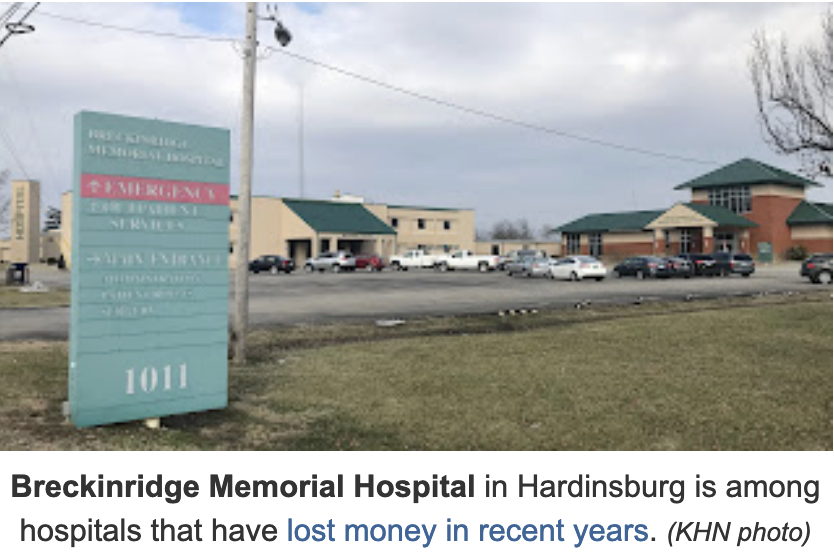Study for hospital association says 38% of Ky. hospitals at risk of closure due to losses; bill would have Medicaid pay for outpatients

By Sarah Ladd
Kentucky Lantern
Citing “inflation, record-high operating costs, and lower volumes,” a new report prepared for the Kentucky Hospital Association says 38% of Kentucky’s hospitals are at risk of closure due to “the unsustainability of operations.”
The report from health-care consulting firm Kaufman Hall shows that the state’s hospitals spent much more on medical supplies since the start of the pandemic than before it, suffered from staffing shortages, saw fewer people in emergency departments, and more.
“Kentucky hospitals continue to face existential financial and operational threats,” Erik Swanson, the senior vice president of data and analytics at Kaufman Hall, said in a statement. “In 2022, Kentucky hospitals experienced their worst financial performance since the outset of the pandemic, and conditions in 2023 remain extremely challenging.”
Kentucky hospital expenses in 2022, the report says, were $4.2 billion higher than before the pandemic — and they surpassed revenue.
“Hospitals are the heart of the communities they serve, providing high-quality, life-saving care to anyone who needs it regardless of their ability to pay,” KHA President and CEO Nancy Galvagni said in a statement. “They are also some of the largest employers in towns across the state, so the financial health of hospitals is critical to both the physical and economic health of Kentucky.”
Already, 42 of Kentucky’s 120 counties do not have a hospital, excluding those facilities inside correctional institutions, a KHA spokeswoman told the Lantern.
KHA said that without the federal Hospital Rate Improvement Program in place last year, “Losses would have exceeded $1.3 billion and operating margins would have fallen even more.”
Citing the situation, Galvagni spoke in support of House Bill 75, which would allow hospitals to be reimbursed by Medicaid for outpatient services, before it passed the Senate Standing Committee on Health Services March 8.
“The timing is very critical for this and we really need it to sustain our hospitals,” Galvagni told the committee, adding that there is no “relief in sight for these high costs that are out there.”